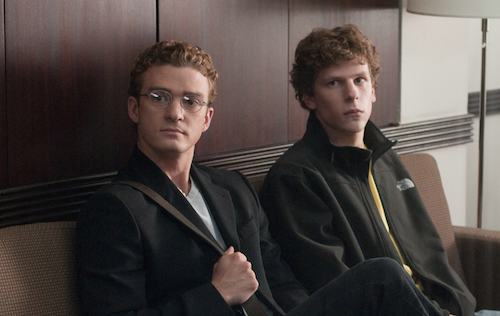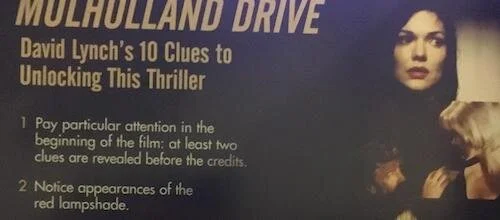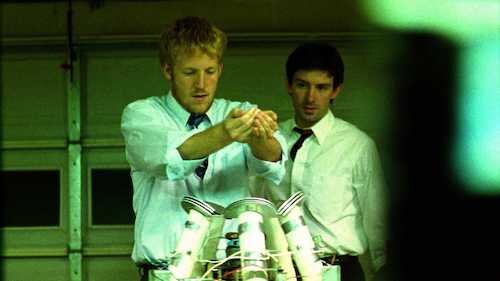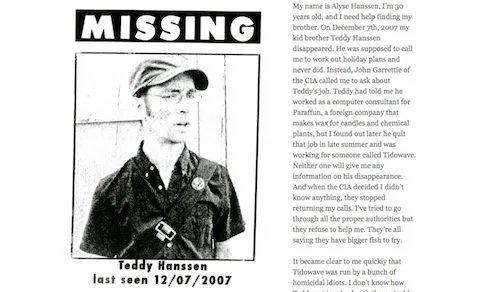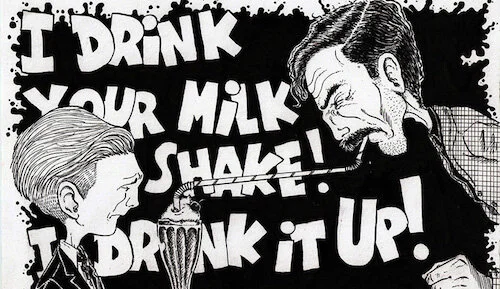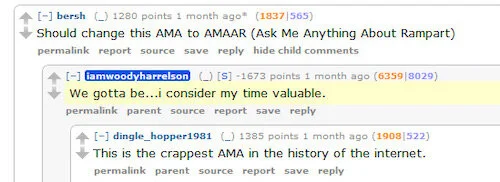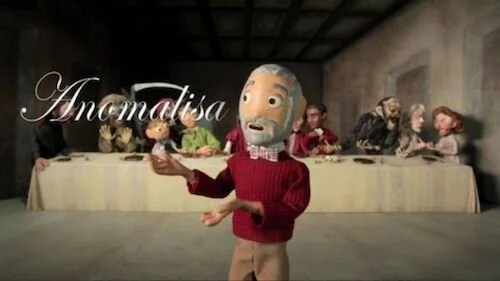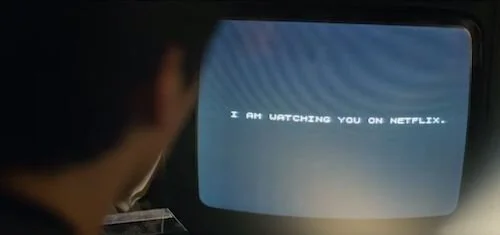Eleven Films that Changed Social Media on Social Media Day
The Social Network
Today is Social Media Day, and that will of course bring up many films that deal with social media to light (obviously The Social Network). I want to try a different angle today. Sure, many films nowadays involve social media in clever ways, or are entirely dependent on the existence of social media based on their narrative (Searching is a great example, as it is entirely recorded off of a computer and through softwares and social media sites). You can even look at celebrity culture and how that impacted social media (including performers like Ashton Kutcher popularizing Twitter). Again, I don’t want to go that route. I find it a little more interesting to see which films actually changed social media, even if ever so slightly. Of course, not all of these works will be the first to do what they accomplished, but I find these eleven films to be worthy of these conversations. Some examples, however, are undeniably important in the shifting tides of the internet age. Here are eleven films that changed social media on Social Media Day.
Mulholland Drive: Internet Discussions on Forums
Back in 2001, David Lynch ensured that all DVD copies of Mulholland Drive came with clues for understanding the film. Part of the everlasting appeal of the film is the slow discovery of one’s own interpretation. While the legacy of the film took its time, the discussions began relatively quickly. Online through various forums, conversations about the film and these ten clues were started. The internet was the perfect place for someone to finally talk about a film they may not fully have understood, or they didn’t see what the appeal was. This experience was shared. To this day, various forums exist: www.mulholland-drive.net is still going (although its forum seems to have been preened sometime in 2010).
Million Dollar Baby: Online Spoiler Awareness
Well before Million Dollar Baby took home the Academy Award for Best Picture, it was the notorious subject of a then-recent discovery: the internet can ruin things for people. The platform wasn’t quite big enough when The Sixth Sense was released, but five years later was all the time that was needed (with the rise of IMDb and Rotten Tomatoes). The plot changing twist that occurs midway was being shared far too often, and protocol was required from here on out. Not everyone can watch films right away, so websites had to try and figure out ways to involve spoiler blockers. Either that, or users had to become more courteous; I’d argue in 2020 that this barely changed.
Primer: Debunking Videos on YouTube
Primer came out before YouTube was created, but its popularity definitely rose on the video platform, due to more lackadaisical piracy protocol back then, and the opportunity to upload one’s own content. Firstly, the comments section of Primer uploads online were full of discussions about the film; how exactly did time travel work in this film? Then, users created debunk videos to explain their interpretations of Primer’s unique approach to time travel. All of the Primer uploads are now gone, and the majority of early videos about it are as well, but people continue to debunk it to this day. This is not unlike the treatment most thought provoking films get.
Cloverfield: Using Online News for Viral Marketing
Word of mouth was all that some films like The Blair Witch Project needed, if not the occasional help from television spots. However, the crew behind Cloverfield got a little creative with selling their film: they created fake news before fake news as a term was coined. Suddenly, suspicious sightings and strange disappearances were being shared everywhere. Of course, some people were quick to notice that this was clearly a marketing ploy for a film, but the mass hysteria of quickly shareable content resulted in more panic than excitement in some online circles (especially when the weird creatures being washed up on shore began). Naturally, all went to rest once the film was released.
The Simpsons Movie: Advertising Through Social Media Avatars
Almost everybody I know got sucked into the whole “Simpson-Yourself” gimmick created to promote The Simpsons Movie (I did too: that picture was mine from thirteen years ago). Everywhere on Facebook and Myspace (amongst other platforms) you would find Simpsons portraits. This trend did not stop, with Avatar fulfilling a similar trend shortly afterwards (I made myself into a Na’Vi, but it was hideous and I got rid of it a decade ago, and refuse to share it here). Then came Scott Pilgrim vs. the World, and The Peanuts Movie, amongst many others. There may have been other films to come before 2007, but The Simpsons may have made the biggest splash first.
Credit: www.romerocomics.com
There Will Be Blood: Viral Sensation
Many films have been turned into memes since the concept of internet memes even began. I want to focus on the films that went one step beyond and became actual trends, like the doorbell jingle from Parasite recently. An early example is the lunacy created by the climactic scene in There Will Be Blood involving a certain consumption of a dairy dessert classic. “I drink your milkshake” began as a common meme, with the proper type facing for its time and the application to strange scenarios. However, it’s the video tributes to this scene (that either homaged it or parodied it) that takes the cake (well, milkshake I suppose). Sadly, it appears many of these lovely videos have been removed. However, some have been re-uploaded, and others simply managed to remain safe from copyright censorship culling.
Rampart: Online Interview Protocol
By 2011, celebrities were now very connected to the social media landscape. You’d be an outlier if you weren’t by now. This includes Woody Harrelson, whose Reddit gaff has forever remained a what-not-to-do in the internet age. However, I want to give him a tiny bit of credit. Generally, performers go on press circuits and do red carpets to sell the films they are attached to. Seeing as Harrelson isn’t really too connected with social media, I can understand the mistake he made accepting to do a Reddit Ask Me Anything. His refusal to answer about anything not related to Rampart (the film he was promoting at the time) is still a horrendous look, and it was a major wakeup call to social media and production promotions alike. Clearly, this was the sign that film promotion was going to change online, if going about it the old way resulted in… well, this.
Under the Skin: Accidental Viral Marketing
Again, to reiterate a point I made earlier, memes have been connected to films for many years now. However, we saw a unique case sometime in 2012. A photograph of Scarlett Johansson falling over went viral, and this apparent mistake was photoshopped in many comedic ways. Little did many people know at the time that this was not by accident, and Johansson was actually acting a part in the middle of London with hidden cameras (as a good amount of the film relied on unrehearsed reactions and responses to Johansson’s character). Once the apparent mystery was solved, Under the Skin received a bit of a promotional push, since context was now needed, and many people perhaps had their first dose of challenging art cinema.
Anomalisa: Crowdsourcing
So Anomalisa is not the first film to be crowdsourced, but it’s a fantastic example. Many people waiting on the latest Charlie Kaufman film. In 2012 sometime, Starburns Industries, Inc. released a Kickstarter campaign with some familiar faces (including Orel Puppington and his father from Moral Orel) and the promise of a new Kaufman feature done entirely in stop motion. It had to be crowdsourced to maintain its artistic vision (we eventually would find out that Anomalisa was completely full throttle on its existential nightmare premise, and this promise was kept). The campaign obviously succeeded, and we were eventually gifted Anomalisa in 2015. The campaign can still be looked at here. Even though crowdsourcing has been done before, Anomalisa — to me — feels like one of the most successful and impactful early examples, which would lead the way for others like Isle of Dogs.
Bandersnatch: Trending Streaming Films
Netflix seems to be able to create popular content that takes over social media, especially around the winter time when many people are cooped up in their homes and are in dire need of entertainment to distract them. Tiger King was 2020’s such popular film. Late 2018 saw the release of two of these works. Bird Box seemed to have its viral success early 2019, but before that Black Mirror’s Netflix feature Bandersnatch seemed to take off right away. This was because of the choose-your-own-adventure approach, which caused viewers to want to share their outcomes with everyone else. Eventually, the hype wore down, and then came Bird Box and its various online challenges that propelled its popularity sky high.
Captain Marvel: Changing User Ratings Formats Online
Captain Marvel is far from the first unreleased film to be user vote bombed into oblivion. However, this is the film where sites like Rotten Tomatoes felt forced to change how users could vote on various films. Before, users could anticipate or dread an upcoming film by clicking a thumbs up or a thumbs down. Due to various campaigns to try and thwart anyone from seeing Captain Marvel (either ranging from those not interested in how the film looked, to people being overly sensitive about some statements Brie Larson made [get over it, she did nothing wrong]), Rotten Tomatoes obliterated the previous voting format. Now, films can’t be downvoted into nothingness before they are even released. This is too bad, because this former voting method could have saved many from seeing Cats.
Andreas Babiolakis has a Masters degree in Film and Photography Preservation and Collections Management from Ryerson University, as well as a Bachelors degree in Cinema Studies from York University. His favourite times of year are the Criterion Collection flash sales and the annual Toronto International Film Festival.

